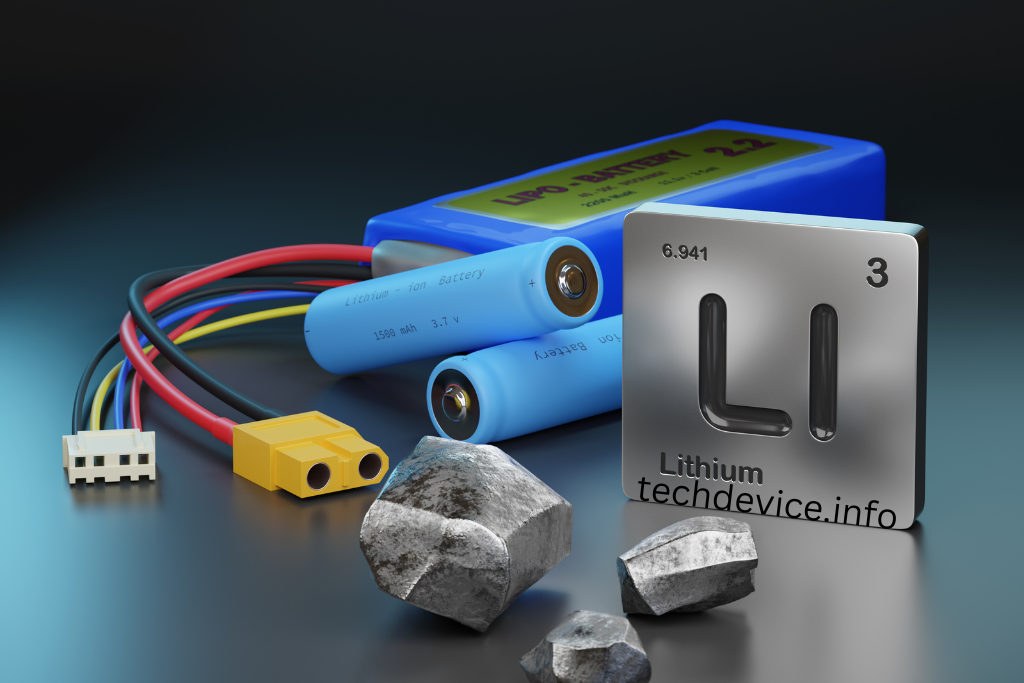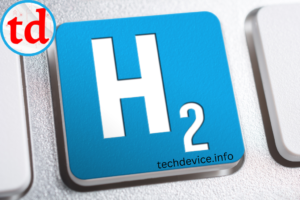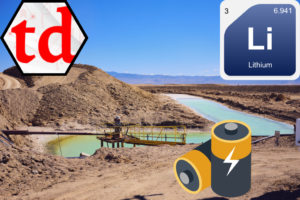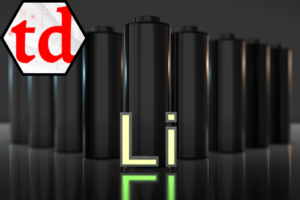
Why is Lithium Important in the World?
curious to know about the Importance of Lithium? Lithium has become an essential resource in the modern world because of its unique qualities and use.
Why is Lithium Important in the World?
A metal which is highly used in battery Electric Car, Mobile Phone, Tablets, Laptops, iPad, cameras, gps, Bluetooth, torch-light, mini bus, toy helicopter, defense, medical, solar energy & communication instruments. In a time when technological progress and renewable energy sources are becoming increasingly important, one element, Lithium, stands out as a crucial part of success. Lithium has become an important resource in the modern world because of its unique qualities and uses. Lithium is an important part of a healthy future because it powers electric cars and changes energy storage. In this blog post, we’ll talk about the importance of Lithium in different fields and how it could change our world.
What Does Lithium Mean?

What Does Lithium Means
The chemical symbol for Lithium is Li, and its atomic number is 3. It is the lightest metal on the periodic table. It is soft and silver-white. Lithium is very explosive and can catch on fire, so it is usually kept in mineral oil to keep it from reacting with water and air. Lithium is used for a lot of essential things. One of the most well-known uses is rechargeable Lithium-ion batteries, often found in electronics like smartphones, computers, and electric cars. People like Lithium batteries because they hold much energy and last a long time.
Pharmaceuticals utilize Lithium. Lithium treats bipolar illness and depression. Pottery, glass, and lubricants use lithium compounds. Many minerals and salts include Lithium. Brine or lithium-rich rocks can supply it. Australia, Chile, China, and Argentina are all big Lithium producers.
History of Lithium

History of Lithium
Lithium is the lightest metal on the periodic table. Additionally, its past goes back hundreds of years and is very interesting. Here are some of the most critical events in Lithium’s history:
White Gold Vs. Black Gold
A decade ago in 20th century oil was called black gold. Similarly today the lithium is called a white gold. In the year 2019 three Nobel prizes were give only to those who research on lithium. To get lithium form land & refine it with latest machinery is a lengthy & difficult process for which we also need heavy financial resources. South America is full lithium resources. In South America Argentina, Bolivia & Chilie have 50% of lithium reserves in the world which is so called lithium triangle. Although the countries like Argentina, Bolivia & Chilie have enough sources of lithium in the world but due to low technology & poor financial resources they are not capable to get lithium from land and refine it but they can make lithium cartel by joint venture and can lead the world.
Discovery:
In 1817, Swedish chemist Johan August Arfwedson found Lithium while looking at petalite rock (LiAl(Si2O5)2). Arfwedson found a new element called Lithium, which comes from the Greek word Lithos, which means “stone.”
Isolation and Getting Recognized:
In 1818, the English chemist Sir Humphry Davy used electrolysis to get Lithium in its pure form. Lithium metal was taken out of Lithium oxide (Li2O) by Davy.
In The Beginning:
At the beginning of the 19th century, Lithium was mainly studied for its qualities as a mineral. Scientists found it in different rocks like lepidolite, spodumene, and amblygonite.
Clinical Applications:
Late in the 19th century, it was found that Lithium could be used as a medicine. In the 1870s, Australian doctor John Cade tried to treat mania and bipolar disorder with Lithium salts. It was the first time Lithium was used in psychiatry.
Production for Profit:
In the 1920s and 1930s, Lithium started to be made for sale. At first, Lithium compounds made ceramics, greases, and lubricants for high temperatures. Demand for Lithium was low until the middle of the 20th century.
Batteries with Lithium-ion:

Lithium-ion Batteries
When Lithium-ion batteries were made, it was a big step forward that put Lithium in the spotlight. In the 1970s, Stanley Whittingham, John Goodenough, and Akira Yoshino made essential contributions to the creation of rechargeable Lithium-ion batteries. These batteries are now used in many consumer electronics, electric vehicles, and energy storage systems.
Making Lithium around the World:
Late in the 20th century, the demand for Lithium went through the roof, and it hasn’t stopped growing. It is because more and more people are buying electric cars and storing energy from green sources. Australia, Chile, China, and Argentina are the countries that make the most Lithium right now.
Applications That Change:
Lithium has been used in many different areas besides batteries. It is used to make glass and ceramics, as a coolant in nuclear reactors, in air conditioning systems, and in the aerospace business. Lithium can also be used to help treat some mental health problems.
Lithium’s past shows how it went from being a relatively unknown element to a critical part of modern technology and industry. Its unique qualities and wide range of uses continue to shape our world today.
Why Lithium Is Important in the World: Characteristics of Lithium
1- Chemical Element:
The chemical sign for Lithium is Li, and its atomic number is 3. It is the lightest metal and a member of the alkali metal group.
2- Very Responsive:
Lithium is very easy to combine with other substances, especially water. It is the most explosive metal, and when exposed to air or water, it can even catch fire or blow up.
3- Low Weight:
Lithium is a light metal because it is not very dense. It is the least thick solid element because it is only about half as heavy as water.
4- Soft and Easy To Shape:
Lithium is a soft metal that can easily cut with a knife or bent into different shapes. It is very malleable and ductile, which means it can be shaped into thin sheets or lines.
5- Appearance: Silver-White:
Lithium looks like silvery-white metal and shines like metal. Even when exposed to air, it stays shiny because an oxide layer forms to protect it.
6- High Chemistry Potential:
Lithium is an excellent choice for batteries because it has the highest electrical potential of all metals. Lithium-ion batteries are used in a lot of electronics and electric cars.
7- Good Conduction:
Lithium moves both heat and power well. It has a high thermal conductivity, which makes it useful for transferring heat. It is also very good at conducting electricity, which is why it is used in batteries and other electronic devices.
8- Low Melting and Boiling Points:
Compared to other metals, Lithium has a low melting and boiling point. It boils at 1,342°C (2,448°F) and melts at 180.5°C (356.9°F).
9- Earth’s Crust Has A Lot Of:
Even though there is not as much Lithium in the Earth’s soil as oxygen or silicon, it is still a fairly common element. It is mainly found in igneous rocks and masses of minerals like spodumene and lepidolite.
10- Used in different fields:
There are several applications for Lithium across numerous industries. The main products include batteries, ceramics, glass, lubricants, alloys, and pharmaceuticals.
Applications of Lithium
- Batteries with Lithium-Ion:
One of the most well-known uses of Lithium is Lithium-ion batteries, which can be charged and used repeatedly. These batteries are often used in portable electronics, electric cars, and systems that store energy from green sources.
- Aerospace Business:
Lithium is used in aircraft because it is light and has much energy per unit of weight. It is used in building planes and rockets to make them lighter and better at what they do.
- Pharmaceuticals:
Bipolar disease and depression are treated with Lithium salts like carbonate and citrate. Lithium is known for its ability to stabilize moods, so it is often used as a medicine for mental health problems.
- Glass and Pottery:
Lithium compounds make glass and pottery better at conducting heat and electricity. Lithium is also used to make special glasses used in things like touch screens and lenses.
- Grease and Lubricants:
Grease made with Lithium is used as a lubricant in various mechanical uses, such as in the automotive, industrial, and aerospace industries. These greases are resistant to water and work well at high temperatures.
- Systems for Cooling and Cooling Air:
Lithium bromide is often used in absorption cooling systems, especially for large-scale air conditioning. By taking in water vapour, it helps cool the air.
- Making Aluminum and Magnesium:
Lithium makes aluminum and magnesium alloys in the building, automotive, and aerospace industries. Lithium makes the structure of these metals stronger and makes them lighter.
- Power from Nukes:
Lithium-6 is a rare form used to make tritium, a crucial fuel for fusion processes in modern nuclear power plants. Lithium is also used in some nuclear reactors to keep things cool.
- Pyrotechnics:
Lithium compounds like Lithium carbonate and chloride are used in fireworks to make red and crimson explosions. When lit, Lithium gives the flames a bright red colour.
- Grease and Oils Used In Industry:
Grease and oils made with Lithium are often used in many industrial settings to lubricate and reduce friction. Additionally, they improve performance and increase the life of heavy machinery, gearboxes, bearings, and other mechanical systems.
Significance of Lithium
Lithium is a crucial element in many parts of everyday life. Here are some of the most important things to know about Lithium:
- Energy Storage:
Lithium-ion batteries have changed the way energy is stored. They are now the most popular choice for portable electronics, electric cars, and systems that store energy from natural sources. Lithium-ion batteries have changed how we use and store energy because they have a high energy density, last longer, and can be charged quickly.
- Sustainable Transportation:
Lithium-ion batteries were crucial to making electric cars (EVs) possible and getting people to use them. They are a clean and efficient option for internal combustion engines. Additionally, it makes them less reliant on fossil fuels and helps fight climate change. Lithium-ion batteries allow electric vehicles to have longer ranges and charge faster, which makes them more valuable and appealing to customers.
- Integration of Renewable Energy:
Lithium-ion batteries allow intelligently adding green energy sources like solar and wind power to the electrical grid. They store extra energy when production is high and use it when demand is high or when renewable energy sources aren’t making power. It helps keep the grid stable, lessens reliance on traditional power sources, and speeds the move to a cleaner, more sustainable energy system.
- Portable Electronics:
Lithium-ion batteries have changed handheld electronics because they are small and have a high energy density. Lithium-ion batteries power many portable gadgets, including smartphones, laptops, tablets, and smart watches. They last longer and work better than other types of batteries.
- Applications in Medicine:
Firstly, Bipolar illness and depression are treated with Lithium compounds like Lithium carbonate. Secondly, Lithium has been shown to help stabilize moods and is one of the most essential medicines for treating these mental health problems.
- Aerospace Business:
Lithium is extremely valuable in the aerospace industry since it is lightweight. It builds lighter airplanes and uses less fuel. Also, satellites and other spacecraft need Lithium-ion batteries to run many of their systems.
- Uses in the Workplace:
Lithium is used in industrial processes, such as making lubricants, greases, glass, ceramics, and metal. It makes these things work better and last longer by improving their properties.
- Changes in Research and Technology:
Lithium is an essential part of scientific study and new technologies. Additionally, It serves in research labs for many things, like developing batteries, studying materials, and studying nuclear fusion.
Kinds of Lithium
Lithium is the lightest metal. It is a chemical element with the number 3 and an atomic number of 3. Here are a few examples:
- Lithium Carbonate:
It is one of the Molecules that make Lithium-ion batteries, pottery, glass, and medicines.
- Lithium Hydroxide (Lioh):
Another important Lithium chemical used to make Lithium-ion batteries, especially for electric cars, is Lithium hydroxide. Additionally, it makes lubricants and ceramics and cleans the air.
- LiCl, Or Lithium Chloride:
Lithium chloride is a drying agent (desiccant) in air conditioning systems and industrial drying processes. It makes Lithium metal in batteries.
- The Metal Lithium (Li):
Lithium metal is the term for pure Lithium, which reacts quickly. Some batteries, which have a higher energy density but are less well-liked due to safety concerns, employ it as an anode material.
- Lithium-Ion Batteries (Li-Ion):
Lithium-ion batteries are rechargeable in portable gadgets, electric cars, and systems that store energy. Lithium compounds such as lithium cobalt oxide (LiCoO2), lithium iron phosphate (LiFePO4), lithium manganese oxide (LiMn2O4), or lithium nickel cobalt aluminum oxide (LiNiCoAlO2) serve as the cathode materials.
- Batteries Made Of Lithium Polymer (Li-Po):
Lithium polymer batteries are a type of Lithium-ion battery in which the medium is a polymer instead of a liquid. Due to their bendable shape, they serve in cell phones, tablets, and other portable devices.
These are some of the most common compounds and kinds of Lithium used differently. The choice of Lithium compound depends on the application’s needs, such as the amount of energy needed, how safe it needs to be, and how much it costs.
Why Is Lithium Important?
Lithium is vital in many parts of the world today, primarily because of its importance in energy storage. Here are some of the most important things to know about Lithium:
Electric Vehicles (EVs):
Many electric vehicles employ lithium-ion batteries, making them crucial in the global transition to more environmentally friendly transportation. Lithium-ion batteries are the best choice for EVs because they have a high energy density and a long cycle life. It helps reduce greenhouse gas emissions and dependence on fossil fuels.
The Storage of Renewable Energy:
Lithium-ion batteries are a great way to store energy from natural sources like the sun and the wind. They make it possible to keep intermittent power from renewable installations and release it when needed. It makes the grid more stable and makes it easier to add renewable energy to it.
Portable Electronics:
Lithium-ion batteries have made it possible for more and more smartphones, tablets, computers, and other portable electronics. Lithium-ion batteries have changed the electronics industry because they are light and have a high energy density. It has made it possible to make small, sleek products with batteries that last a long time.
Energy Grid Storage:
Lithium-ion batteries store energy on a large scale. Large-scale energy storage devices help balance the supply and demand of electricity, manage peak loads, and provide backup power when the power goes out. Grid storage helps make the energy grid more stable and reliable, which makes it more reliable and efficient.
Why is Lithium Important in the World of Medicine?
Lithium chemicals, especially lithium carbonate, treat bipolar disorder. Lithium stabilizes mood fluctuations and reduces bipolar disorder relapse. This makes it an essential drug in psychiatry.
Uses in the Workplace:
Lithium serves different businesses to make things like glass, pottery, and lubricants. Lithium-based greases and complex Lithium soaps are useful in industrial machinery and cars because they work well at high temperatures, prevent corrosion, and keep moving parts lubricated for a long time.
China is the Leader of Lithium Importer
China has only 6% of lithium resources in the world but still China is the largest lithium supplier in the world because China has the latest technology to get lithium from land & refine it with latest technology which other countries does not have. China is investing a heavy amount on these countries like Argentina, Bolive, Chile & Australia as well for getting lithium. China is the largest shareholder of lithium refinery companies in the world. China is the largest importer of lithium in the world and after refining lithium China supply batteries in the world. A China company CATLP also fulfill the demand of lithium battery for TESLA Company based in USA. Lithium batteries used in iPhone & iPad also prepare a China based company.
Richest Resources of Lithium
The countries who have highest quantity lithium & they can easily refine it.
Lithium Processing
China 58%, Chile 29% and Argentina 10%
Lithium Extraction
Australia 52%, Chile 22% and China 13%
Worldwide Resources of Lithium
Bolivia: 21%
Argentina: 19%
Chile: 9.8%
United States: 9.1%
Australia: 7.3%
China: 5.1%
Democratic Republic of the Congo: 3%
Canada: 2.9%
Germany: 2.7%
Mexico: 1.7%
Czechia: 1.3%
Demand of Lithium batteries
We are using batteries for backup & different methods for energy storage since decades but in current century due to friendly environment and economic fight between the countries the demand of batteries & energy storage devices are increases. Different countries are trying to promote electric cars in which lithium batteries use instead of diesel & petrol vehicles. That’s why the demand of lithium battery are increasing day by day.
Following are some important points that people prefer lithium batteries
i- Batteries weight
ii- Storage capacity
iii- Production costs
iv- Lifespan
v- Recharging capacity
vi- Environmental Impact
Types of Electric Batteries
i- Lithium-ion Battery
ii- Hybrid Nickal-Metal Battery
iii- Lead Acid Battery
iv- Solid-State Battery
v- Nickel Cadmium Battery
vi- Nickal-Metal Hybrid Battery
Disadvantages of Lithium Batteries
i- It is sensitive to high temperatures
ii- Once completely discharged, it can no longer be recharged
iii- It is relatively expensive
Nickal-Metal Hybrid Battery
Electric car mostly use nickal-metal hybrid battery. These kinds of batteries do not require any kind of external power recourse to charge. Charging of these kinds of batteries mainly depends on generative braking, speed & wheels. Nickal-Metal Hybrid batteries have a better life cycle then lithium-ion batteries and have safer in case of intolerant use. That’s why people these kinds of batteries in hybrid cars. People also use Nickal-Metal Hybrid batteries in computer & some medical instruments because of specific energy & specific power capabilities.
i- Higher self-discharge rate
ii- More expensive
iii- Generate heat in high temperature
Lead Acid Battery
Lead acid is one of the oldest kind of rechargeable batteries. Such kind of batteries are still found in many vehicles. Compare to lithium-ion & nickal-metal hybrid batteries Lead Acid Batteries are much heavier & eventually lose capacity but many automobile companies are still use lead acid battery because of its cheap price. The Lead Acid Batteries only offers a limited capacity despite its significant bulk & weight but it is both inexpensive, easy to produce & recycle.
Advantages of Lead Acid Battery
i- Available in production volume
ii- Comparatively low in cost
iii- Mature technology as used for over 50 years
Disadvantages of Lead Acid Battery
i- Cannot discharge more than 20% of its capacity
ii- Limited life cycle if operated on a deep rate of state of charge
iii- Low energy & power density
iv- Much heavier in weight
v- May need maintenance
Solid State Battery
Nickal-Metal Hybrid battery Vs. Lead Acid Battery Nickal-Metal Hybrid batteries have much longer life cycle then Lead acid battery.
i- Double energy density compared to lead-acid battery
ii- Harmless to the environment
iii- Easily recyclable
iv- Safe operation at high voltage
v- Store volumetric power & energy
vi- Cycle life is longer
vi- Operating temperature range is long
vii- Resistant to over charge & discharge
Disadvantages of Nickal-Metal Hybrid Batteries
i- Reduced lifetime of around 200-300 cycles, if discharged rapidly on high currents
ii- High self-discharged and heat generation at high temperatures
iii- Reduce useable power because of memory effect
Conclusion
You can’t say enough about the importance of Lithium today. Lithium additionally powers electric cars, stores energy from green sources, improves electronics, and helps with medical treatments. Why is Lithium essential in the world? Lithium is a crucial resource for driving innovation and progress in a world focused on sustainability and clean energy. It is at the forefront of modern progress because of its unique properties and uses.
As we move forward, we must invest in research and development to improve Lithium battery technology, expand energy storage, and improve Lithium extraction and recycling. Diversifying where we get Lithium to keep energy can also help Lithium’s reliant on limited Lithium stocks and ensure that future generations will have a stable supply.
Ultimately, it’s impossible to overstate the Importance of Lithium in the modern world. Because it serves to power electric vehicles, store renewable energy, enhance electronics, and aid in medical procedures, Lithium is essential to promoting sustainable growth. We can keep using the power of Lithium to make a cleaner, better, and more sustainable future Lithium if we use it to its full potential and do things the right way.


